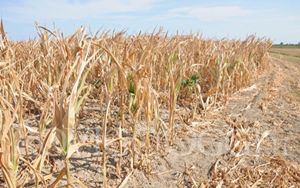(Finance) – With beyond 60 thousand hectares burned by fires in the first eight months of 2023, which have already surpassed those incinerated throughout last year, with lake levels at a minimum due to drought and with the heat beckoning city And campaigns, the arrival of the rain represents an important breath of fresh air for the area. This is what emerges from the analysis of the Coldiretti on data Effis in reference to the end of the long, torrid summer that took Italy hostage with record temperatures that should drop over the weekend with the first rainfall in the north.
But if the rain is expected to restore water supplies in lakes, rivers, land and mountains, but it is important that it falls continuously and moderately because heavy storms with water bombs and violent rainfall – explains Coldiretti – make the situation worse, even with landslides And landslides, as dry soils cannot absorb excess water. A daughter situation of change climate which has multiplied extreme events and which makes it urgent to act with long-term projects to manage water resources and conserve and use them when needed.
The rain – highlights Coldiretti – also serves to restore theenvironmental balance of the woods to protect them from the outbreak of fires which, favored by the anomalous heat, cause enormous long-term damage. In fact – Coldiretti highlights – it takes at least 15 years to completely restore the green areas destroyed by the flames and rebuild the environmental and economic systems of the devastated areas.
Meanwhile heat And Drought have upset the campaigns where – underlines Coldiretti – this year there is a 10% cut of the grain harvestof 14% of that of wine grapes up to 63% of pears while the honey harvest fell by 70% compared to last year while the great heat is reducing the production of milk in the stables by up to 20%.
L’African heat wave – highlights Coldiretti – is the tip of the iceberg of anomalies of this crazy 2023 which has been marked, until now, first by a severe drought which has compromised the crops in the field and then by the multiplication of extreme weather events, abundant rainfall and low temperatures and finally by the torrid heat of July and August with damage to agriculture and rural infrastructure which – concludes Coldiretti – have already exceeded 6 billion last year.
